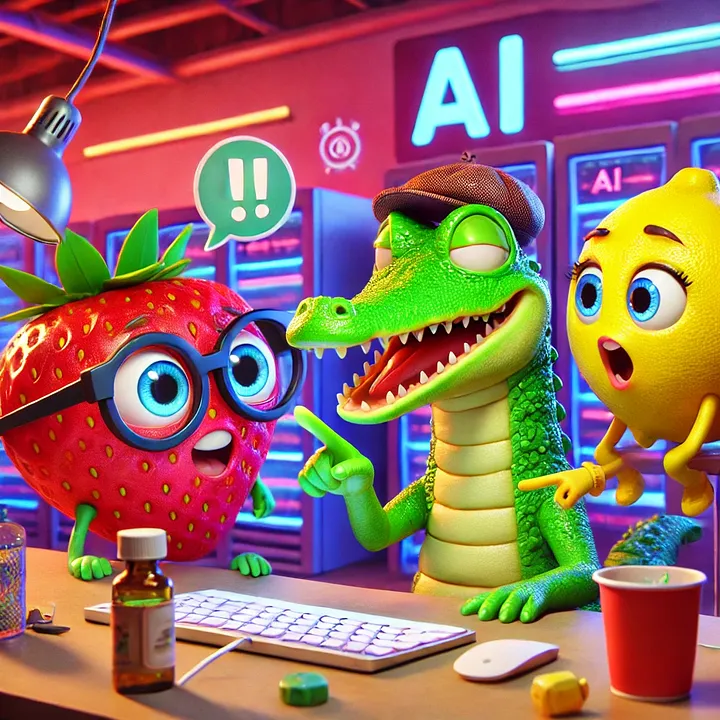The Intersection of Superintelligence and Theoretical Physics: Exploring Two Frontiers of Knowledge

In an era where technology evolves at lightning speed, the dialogue between artificial intelligence (AI) and theoretical physics has never been more pertinent. Nick Bostrom's groundbreaking book, "Superintelligence: Paths, Dangers, Strategies," delves into the future of AI and its potential to surpass human intelligence. Simultaneously, theoretical physicists are harnessing AI to push the boundaries of our understanding of the universe. This article explores how "Superintelligence" touches upon theoretical physics and how theoretical physicists perceive and utilize AI in their quest for knowledge.
Superintelligence's Take on Theoretical Physics
Nick Bostrom's "Superintelligence" primarily focuses on the trajectories, risks, and strategic considerations surrounding the development of AI that surpasses human intellect. While the book is not a deep dive into theoretical physics, it acknowledges several intersections where physics plays a crucial role in the evolution of superintelligent systems:
1. Computational Limits and Physical Constraints
Energy Requirements: Building and scaling AI systems to superintelligent levels demands immense computational power, which in turn requires substantial energy. Bostrom discusses the thermodynamics of computation, highlighting how energy efficiency and heat dissipation are critical factors that are grounded in physical laws.
Speed of Information Processing: Theoretical physics dictates the maximum speed at which information can be processed, influenced by principles like the speed of light and quantum mechanics. These constraints set boundaries on how quickly AI can evolve and operate.
2. Quantum Computing as a Catalyst for AI
Enhanced Computational Capabilities: Quantum computing, a field deeply rooted in theoretical physics, promises to exponentially increase computational power. Bostrom touches upon how advancements in quantum algorithms could accelerate AI development, enabling machines to solve complex problems beyond the reach of classical computers.
3. Simulation Hypotheses
Modeling Universes: The concept that superintelligent AI might create or explore simulations of physical realities relies heavily on theoretical physics. Accurately modeling a universe requires a profound understanding of physical laws, making theoretical physics indispensable in this speculative scenario.
While "Superintelligence" doesn't extensively cover theoretical physics, it recognizes the foundational role that physics plays in the practical aspects of AI development, from computational limits to the potential of quantum technologies.
Theoretical Physicists' Perspective on AI
On the flip side, theoretical physicists view AI as both a powerful tool and a subject of profound philosophical inquiry. Their perspectives on AI encompass several dimensions:
1. AI as a Research Tool
Data Analysis and Pattern Recognition: Theoretical physicists often deal with vast amounts of data, whether from particle accelerators like CERN's Large Hadron Collider or astronomical observations. AI and machine learning models assist in sifting through this data, identifying patterns, and uncovering anomalies that might hint at new physical phenomena.
Simulating Complex Systems: AI aids in simulating intricate physical systems, from quantum mechanics to cosmological models. These simulations can test hypotheses and explore scenarios that are otherwise computationally prohibitive.
2. Advancing Understanding of Intelligence and Consciousness
Fundamental Questions: The development of AI prompts theoretical physicists to explore the nature of intelligence and consciousness. Drawing parallels between complex systems in physics and AI can lead to deeper insights into how intelligence emerges and operates.
Information Theory: Information theory, a branch closely linked to physics, is integral to understanding how AI processes and learns from data. This connection helps physicists analyze AI systems through the lens of information dynamics and entropy.
3. Ethical and Existential Considerations
Societal Impact: Theoretical physicists, much like their counterparts in other scientific fields, are concerned about the societal implications of AI. Issues such as job displacement, ethical use of technology, and the long-term trajectory of intelligent systems are subjects of active debate.
Existential Risks: Inspired by Bostrom's work, some physicists contemplate the existential risks posed by superintelligent AI. They advocate for research into safe and aligned AI development to mitigate potential threats to humanity.
4. Cross-Disciplinary Innovations
Quantum AI: The fusion of quantum computing and AI is an emerging area of interest. Theoretical physicists are exploring how quantum algorithms can enhance machine learning models, potentially leading to breakthroughs in both fields.
Complex Systems and Emergent Behaviors: AI models that mimic complex systems studied in physics can lead to a better understanding of phenomena like phase transitions, chaos theory, and emergent behaviors in both artificial and natural systems.
Bridging Two Worlds
The interplay between superintelligent AI and theoretical physics is marked by both collaboration and contemplation. While Bostrom's "Superintelligence" underscores the strategic and existential aspects of AI development, it also implicitly relies on the principles of physics to frame the possibilities and limitations of AI's growth. Conversely, theoretical physicists leverage AI as a tool to propel their research forward while simultaneously grappling with the philosophical and ethical questions that AI introduces.
As we stand on the brink of unprecedented technological advancements, the dialogue between AI and theoretical physics will continue to shape our understanding of both the universe and our place within it. Embracing this interdisciplinary conversation is crucial for navigating the challenges and harnessing the potentials that lie ahead.
Written by StynerDev
Full-Stack Developer – Serverless & Modern Web Apps
Related Articles

Decoding the Universe Within: The Neuroscience and Philosophy of Solitude in Coding
Exploring the mental landscape of focused development...

Quantum Computing: The Next Frontier in AI Development
How quantum algorithms are revolutionizing machine learning...
Stay updated with the latest in AI and Physics
Subscribe to our newsletter to receive updates on cutting-edge research and innovations.